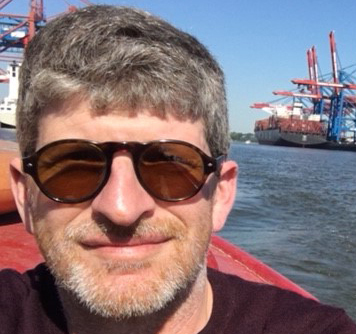Ashrith Domun, a third-year chemical engineering student, was learning about business plans in an entrepreneurship course when he stumbled across what he reckoned was a good market opportunity: business incentives meant to kickstart the sluggish hydrogen fuel cell industry. “It seemed like a green light all the way.”
This past March, he pitched his roommate, Stefan Attig, a fourth-year student in environmental studies, on joining forces to apply for a spot at the Hatchery, a three-year-old business accelerator run by the Faculty of Applied Science and Engineering. An engineering science student, Tian Tian, approached Domun and Attig about joining the team and the three put in a pitch. Several months later, they’re working on a plan to operate buses equipped with hydrogen fuel cells. They’re testing the commercial viability of their plan with a proposal for the shuttle bus service between U of T’s Mississauga and St. George campuses.
The Hatchery serves students in the earliest stage of the entrepreneurship “ecosystem” at U of T, offering undergraduate teams that include at least one engineer an opportunity to launch start-ups, based on a strong idea that solves customers’ problems. Each team is assigned a private-sector mentor and receives help with registering patents and creating a business plan. UTSC has launched a similar earlystage innovation centre, known as The Hub, and, in February, U of T Mississauga will open its own version, I-Cube.
Joseph Orozco, who co-founded the Hatchery, says the program has attracted multi-disciplinary teams working on wearable technology, medical applications and software. A few have gone on to commercialize their products. One Hatchery start-up, FuelWear, which makes thermal garments that heat up when you’re feeling cool, has raised $80,000 on a crowdfunding website.
Basic start-up advice and feedback are key components of the Hatchery’s program, whose students likely have no business experience. Domun says meetings with other hydrogen entrepreneurs gave his team a feel for the gaps in the Canadian market, validated their assumptions about the industry and provided contacts with potential equipment suppliers. At the Hatchery’s “demo day,” Domun’s team, called Hydron, presented its plan to other students and mentors.
The feedback they got throughout the Hatchery process prompted Hydron’s partners to reorient their game plan. The original idea was to build a hydrogen refuelling infrastructure for the province, but they learned that the sector is dogged by a chicken-and-egg problem: refuelling infrastructure only generates a return if there are vehicles, but no one purchases vehicles because there’s no refuelling infrastructure. With their revised market strategy – running corporate vehicle fleets using fuel cells – they also learned the importance of a compelling sales pitch. “The Hatchery makes you do things that you don’t think are important,” says Domun. “They forced us to focus on communications a lot.”






